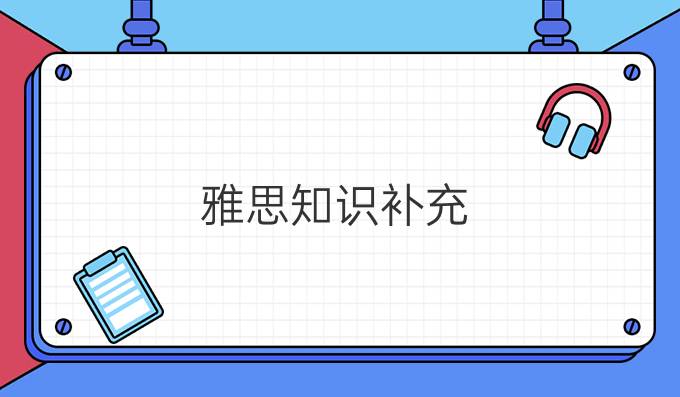1、affect / effect

Affect只可用于表示影响已存在的事物,而effect则表示影响到某事某物,给其带来了改变。
我们可以说:
It effected a change in his attitude.
这使他的态度产生了变化。
或者说,
It affected his attitude.
这影响了他的态度。
不过,我们不能将“影响”和“带来改变”这两种意思结合起来,说成“It affected a change in his attitude”。
▌例句
The bad weather affects my mood.
坏天气影响我心情。
The president effected several changes in the company.
总裁使公司发生了几个变化。
2、alibi / excuse
Alibi表示“某人不在场的证据”,容易与“excuse”(理由、借口)这一宽泛笼统的概念混淆。
▌例句
The police broke her alibi by proving she knew how to shoot a pistol.
警方通过她知道如何使用手枪射击来*案发时她不在现场的辩解不实。
I can't buy his excuse.
我不能相信他的借口。
3、alternatives/choices
alternatives通常会错用作“choices”。如果选择只有两个,则可称之为“alternatives”。如果选择超过两个,则称之为“choices”。
▌例句
New ways to treat arthritis may provide an alternative to painkillers.
治疗关节炎的新方法可能会*一种止痛药的替代品。
Our choices come down to staying here or leaving here.
我们的选择实际上就是留下还是离开两条道路。
4、anticipate/expect
Expect表示认为某事可能会发生;anticipate表示为未来可能发生的事做好准备,提前采取行动。
▌例句
I expect that the weather will be nice.
我想天气会好的。
What Jeff did was to anticipate my next question.
杰夫所做的是预先准备我的下一个问题。
5、flagrant/blatant
形容公然、明目张胆、厚颜无耻的冒犯,好用blatant;如果想强调其严重违反法律或法规则好用flagrant。
▌例句
Outsiders will continue to suffer the most blatant discrimination.
圈外人将继续遭受其明目张胆的歧视。
The judge called the decision "a flagrant violation of international law."
法官称这个决定是“对际法的公然违反”。
6、chronic/acute/severe
chronic会与acute、severe混淆,后二者在医学意义上与chronic意义相反。
Chronic一词源于希腊语“chronos”(时间),表示持续时间长的,用来形容慢性的、持续折磨人的疾病。
Acute可以用来形容严重的、进入危险期的疾病。
▌例句
For those with chronic depression, she said, "keep at it."
对于那些遭受慢性抑郁困扰的患者,她说:“要坚持!”
Acute dysentery wracked and sapped life from his body.
急性痢疾严重损害和消耗了他的身体。
7、compose/comprise
compose表示构成、组成、…组成了……,而comprise则表示包含、包括、……由......组成。整体包含部分,用comprise表示,部分组成整体用compose表示。
▌例句
England, Scotland and Wales compose the island of Great Britain.
英格兰、苏格兰和威尔士组成大不列颠岛。
After the 2014 referendum on independence for Scotland, the UK still comprised England, Scotland, Northern Ireland and Wales.
2014年苏格兰立公投后,英仍由英格兰、苏格兰、北爱尔兰和威尔士组成。
8、continual/continuous
“Continual interruption”即可说明两者的区别。这个词组表示说话人被打断后又开始说话。他的演讲不是“连续不断的”(continuous),因为整个过程是断断续续的。
▌例句:
“No nation could preserve its freedom in the midst of continual war,” Madison concluded.
麦迪逊总结说:“没有任何一个能在频繁战乱中维护自由”。
Continuous farming impoverishes the soil.
连续耕作使土壤变得贫瘠。
9、crescendo/climax
crescendo表示一段音乐的音量逐渐升高。形象地说,crescendo表示逐渐达到高潮(climax)。因此,“Rise to a crescendo”这句话是没有意义的。
▌例句
She spoke in a crescendo: "You are a bad girl! You are a wicked girl! You are evil!"
她嗓门越来越高地喊道:“你这个坏丫头!你这个恶丫头!你真恶毒!”
The fifth scene was the climax of the play.
五幕是全剧的高潮。
10、decimate
decimate会与destroy混淆,decimate的派生词decimation表示“十一抽杀律”(罗马军团对叛乱者或临阵脱逃的部队施以集体惩罚的一种手段,十个人一组进行抽签,抽出一人处死)。
如今,decimate通常用于形象地表示死伤惨重(very heavy casualties),但是,“全部被杀害”(completely decimated)或“屠杀了半个村庄”(decimated as much as half the town)的说法是错误的。
▌例句
Famine decimated the population.
饥荒使大量人口丧生。
 沪公网安备31010102007649号
图书经营许可证:第A7651号
版权所有:上海朗阁教育科技股份有限公司 Copyright 2005 LONGRE EDUCATION GROUP All Rights Reserved
沪公网安备31010102007649号
图书经营许可证:第A7651号
版权所有:上海朗阁教育科技股份有限公司 Copyright 2005 LONGRE EDUCATION GROUP All Rights Reserved